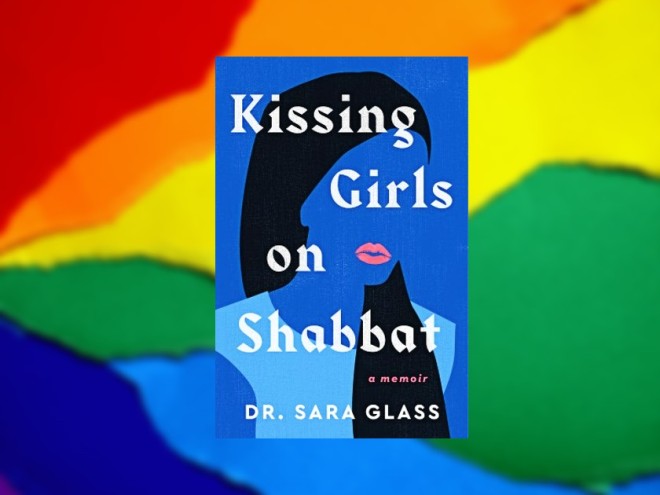Dr. Sara Glass begins her memoir by relating a memory: she and her friend Dassa, who “on the outside” looked like “the other college-aged Orthodox Jewish young women in Borough Park,” fell in love with each other as they participated in the shidduch process. Glass writes with tenderness, great care, and affection. She renders the early story of her relationship with Dassa beautifully. The intimacy and yearning between the two young women is profound and moving.
Although structurally Kissing Girls on Shabbat is a coming-out narrative, opening with a teenage love story and concluding with being out in the world, what makes it unique is that it places queerness in a broader conversation about the constraints that people encounter in the world and how they navigate them. At its heart, this memoir is a story of a woman and her family, and where and how their Orthodox community serves and fails them. Glass explores her sister’s struggle with manic depression, an ultimately incurable disease that takes her in and out of hospitals from a young age. She also writes about her mother’s struggle with depression, observing, “I knew that she did not mean to live inside of tombs, that she did not choose to have a mind that was shrouded by demons.” Both lesbianism and mental illness drive a wedge between Glass and her Orthodox communities.
The richest narratives in Kissing Girls on Shabbat are the ones that investigate the effects of silences and taboos in families. In the final third of the book, Glass writes, “I was so over shoving entire parts of the human experience under the rug, out of sight.” This call for openness, for a life unshrouded and examined, is the emotional heart of the book. Kissing Girls on Shabbat is a story about finding the courage to be oneself and live openly in the world — but it is also a story about Glass’s commitment to raising her children to be open, loving, and thoughtful human beings. The memoir leaves us with a number of questions: how do religious communities build more space for a diversity of human experiences? And how do people who have life experiences outside of what is narrowly prescribed engage with religion and religious communities? Glass offers some insights and reflections, but she leaves plenty of room for further exploration.
Julie R. Enszer is the author of four poetry collections, including Avowed, and the editor of OutWrite: The Speeches that Shaped LGBTQ Literary Culture, Fire-Rimmed Eden: Selected Poems by Lynn Lonidier, The Complete Works of Pat Parker, and Sister Love: The Letters of Audre Lorde and Pat Parker 1974 – 1989. Enszer edits and publishes Sinister Wisdom, a multicultural lesbian literary and art journal. You can read more of her work at www.JulieREnszer.com.



